Biden signs short-term funding bill to avert government shutdown
Washington — President Biden signed a government funding extension on Friday that delays a partial shutdown for at least another week.
Funding for some agencies was set to lapse Friday, while the rest were funded through March 8.
But Congress reached a deal late Wednesday on a temporary funding patch, punting the deadlines to March 8 and March 22. The measure passed in the House and Senate in a bipartisan vote, making it the fourth time since September that a shutdown has been narrowly averted.
Under the bipartisan agreement, six of the 12 annual spending bills will now need to be passed before the end of next week. Congressional leaders said the one-week extension was necessary to allow the appropriations committees "adequate time to execute on this deal in principle" and give lawmakers time to review the package's text.
Congress then has two more weeks to pass the other six spending bills to fully fund the government until September.
Mr. Biden said in a statement Thursday that the extension was "good news for the American people" but noted that "this is a short-term fix — not a long-term solution."
"In the days ahead, Congress must do its job and pass full-year funding bills that deliver for the American people," he said.
Israeli Prime Minister Benjamin Netanyahu says the U.S. would be "doing a hell of a lot more" after a terror attack
Israeli Prime Minister Benjamin Netanyahu defended the military's response in Gaza, saying that the United States would be doing "a hell of a lot more" if faced with a terror attack similar to Hamas' attack on Israel on Oct. 7.
"What would America do?" Netanyahu said on "Face the Nation" on Sunday. "Would you not be doing what Israel is doing? You'd be doing a hell of a lot more."
More than four months after Hamas' terrorist attack on Israel, Netanyahu's government has been under intense international pressure to halt its offensive in Gaza, as the death toll approaches 30,000 in the region, according to the Hamas-run Gaza Ministry of Health. Meanwhile, President Biden has taken an increasingly sharper public tone with Israel in recent weeks, while balancing support for the U.S. ally as the White House seeks a lengthy pause in the fighting and a hostage exchange.
Netanyahu said Sunday that Hamas is on "another planet" in the negotiations, though he acknowledged that Israel is "working on it" and wants to see the remaining hostages released. Netanyahu said seeing the remaining hostages freed is part of his three goals, which he reiterated on Sunday. The other goals, he said, are to "destroy Hamas," and to "ensure that Gaza does not pose a threat to Israel in the future."
"Unless we have total victory, we can't have peace," Netanyahu said. 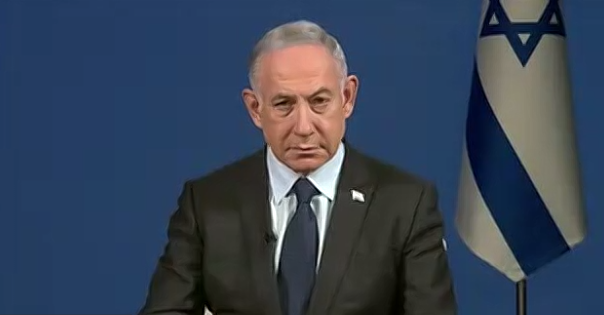 Israeli Prime Minister Benjamin Netanyahu on "Face the Nation," Feb. 25, 2024.
Israeli Prime Minister Benjamin Netanyahu on "Face the Nation," Feb. 25, 2024.
CBS NEWS
The Biden administration and the Israeli leader have diverged on the path forward in recent weeks, as the White House aims for Palestinian governance of Gaza and a two-state solution in the long term, which Israel's government opposes.
Last week, Israel formally opposed recognizing Palestinian statehood unilaterally, suggesting that a decision would have to be made through negotiators. The Netanyahu-backed move preempts international pressure, amid discussions about recognizing a Palestinian state absent a deal.
Netanyahu touted the vote on Sunday, saying "the Israeli people are united as never before," while adding that "the policy is right."
The comments come after Israel's finance minister announced new plans in recent days to build thousands of homes in settlements in the Israeli-occupied West Bank, following a fatal shooting attack by Palestinian gunmen. The Biden administration said the plan is inconsistent with international law.
"Our administration maintains a firm opposition to settlement expansion and, in our judgment, this only weakens, doesn't strengthen Israel's security," U.S. Secretary of State Antony Blinken told reporters on Friday, adding that the U.S. is "disappointed" by the announcement.
Mr. Biden has also urged Netanyahu in recent weeks not to proceed with an invasion of the large southern Gaza city of Rafah, where around 1.4 million Palestinians have sought shelter from the war. Mr. Biden has repeatedly urged Israel not to move forward unless it had a "credible" plan for ensuring the safety of the people sheltering there.
Netanyahu said Sunday that once the Rafah operation begins, "the intense phase of the fighting is weeks away from completion." He said he has been meeting with officials imminently on a plan to evacuate Palestinians out of Rafa, and he said that Israel has "gone to extraordinary lengths" to notify people in Gaza about incoming bombardments more broadly.
"We'll clear them out of harm's way, we'll complete the job and achieve total victory, which is necessary to give a secure future for Israel, a better future for Gaza and a better future for the Middle East," he said.
Israel & Hamas At War More
Israel accused of deliberately starving Gaza civilians as war plans leave Netanyahu "increasingly isolated"
On the ruins of what was once Gaza's main coastal road, Palestinians displaced by months of intense fighting as Israel battles to destroy Hamas were on the move again Tuesday. This time, they were looking for food.
Across the decimated Gaza Strip, starvation has become so acute that the Jordanian military has taken to airdropping rations. Videos posted online Tuesday showed hundreds of desperate Palestinians crowding a beach as packages fell into the water not far from the shore.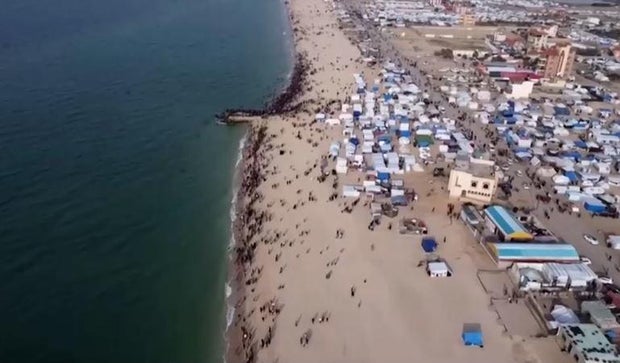 Drone video obtained by Reuters show people gathering by the shore at Deir al-Balah, Gaza Strip, as Jordanian aircraft drop humanitarian aid for thousands of displaced Palestinian civilians, Feb. 26, 2024.
Drone video obtained by Reuters show people gathering by the shore at Deir al-Balah, Gaza Strip, as Jordanian aircraft drop humanitarian aid for thousands of displaced Palestinian civilians, Feb. 26, 2024.
REUTERS
U.N. official says Israel "intentionally depriving people of food"
According to the United Nations, the amount of aid reaching the Palestinian territory dropped by 50% in February compared to the previous month. Gaza was ruled for almost two decades by Hamas before the group launched its brutal Oct. 7 terrorist attack on Israel, which sparked the current war.
The dire circumstances have led the U.N.'s special rapporteur on the right to food, Michael Fakhri, to condemn Israel for what he said was an intentional and illegal bid to starve Palestinian civilians in retaliation for the Hamas attack. Palestinian children wait for the food at Jabalia Refugee Camp in Gaza, Feb. 26, 2024.
Palestinian children wait for the food at Jabalia Refugee Camp in Gaza, Feb. 26, 2024.
DAWOUD ABO ALKAS/ANADOLU/GETTY
"There is no reason to intentionally block the passage of humanitarian aid or intentionally obliterate small-scale fishing vessels, greenhouses and orchards in Gaza — other than to deny people access to food," Fakhri told British newspaper The Guardian in an interview published Tuesday.
"Intentionally depriving people of food is clearly a war crime," he said. "In my view as a U.N. human rights expert, this is now a situation of genocide. This means the State of Israel in its entirety is culpable and should be held accountable, not just individuals or this government."
Israel has vehemently rejected accusations — including a case brought by South Africa at the U.N.'s highest court — that its actions in Gaza constitute genocide. Its government and military insist that the war is against Hamas, not Palestinians, and that all possible measures are taken to avoid harming civilians.
But the Israel Defense Forces are still preparing for a ground offensive in the southern city of Rafah, where an estimated 1.5 million displaced people have sought shelter from the war. The U.S. and many other nations and organizations have warned that a ground offensive in the densely-packed city could lead to a serious increase in civilian casualties.
Israel "increasingly isolated" as U.S. pushes for cease-fire
There has been no official comment from Israel's government on President Biden's suggestion Monday that a six-week Gaza cease-fire and hostage release deal could be reached as soon as this week.
The White House has made it clear that it wants a deal struck before the Islamic holy month of Ramadan begins on March 10, but Israeli media reports suggest Prime Minister Benjamin Netanyahu may try to quash any agreement. He's said repeatedly that Israel will continue its war until Hamas is completely dismantled in Gaza, including four combat units he says the group still has in Rafah.
Dahlia Scheindlin, a political analyst and author of "The Crooked Timber of Democracy in Israel," told CBS News that Netanyahu "likes to make a show of showing that he can stand up to the Biden administration."
But she added that, "ultimately, America's the real ally Israel can depend on," and she said Netanyahu's government "can't ignore it entirely."
"Netanyahu has no choice but to consider the Biden administration's wishes," she said. "The Biden administration gave him what, you know, many see as a blank check, right? Basically giving Israel political cover… vast economic support and military support."
But Scheindlin said that support was changing, and the White House has started to pressure Israel "in small and incremental ways, to express that it's prepared to use policy to pressure Israel to change its policies."
She said the pressure was slowly shifting from back channel requests for changes in Israel's military operations, to more public warnings, and lately even measures with real impacts, such as "announcing sanctions on a very limited number of violent settlement settlers, which sends a message."
Scheindlin also noted the change in rhetoric that came just last week, when Mr. Biden's top diplomat declared the settlements in the Israeli-occupied West Bank to be "inconsistent with international law."
She said the mounting pressure "can genuinely affect what Israel can and can't do and, of course, they send a major signal that Israel is endangering its relationship with its best ally."
Noting that many European nations were "very uncomfortable with the way this war is going," she said Israel was "increasingly isolated on these issues."
Speaking Sunday on CBS' "Face the Nation," Netanyahu defended his military's actions in Gaza, saying the United States would be doing "a hell of a lot more" if it had faced a terror attack similar to the one carried out by Hamas in October.
"What would America do?" Netanyahu asked. "Would you not be doing what Israel is doing? You'd be doing a hell of a lot more."
Biden says he hopes for Israel-Hamas cease-fire by Monda
Washington — President Biden said Monday that a deal between Israel and Hamas for a cease-fire in Gaza is close.
"My national security adviser tells me that we're close, we're close, it's not done yet. And my hope is that by next Monday we'll have a cease-fire," Mr. Biden told reporters during a stop in New York City.
Mr. Biden said earlier this month that the U.S. was working to negotiate a hostage deal between Israel and Hamas that would pause fighting in Gaza for at least six weeks. He said the deal would "bring an immediate and sustained period of calm to Gaza for at least six weeks, which we could then take the time to build something more enduring."
In an appearance that aired early Tuesday on NBC's "Late Night With Seth Meyers," the president said Israel would be willing to pause its assault during Ramadan if a deal is reached. The Muslim holy month begins around March 10.
"Ramadan's coming up and there has been an agreement by the Israelis that they would not engage in activities during Ramadan as well, in order to give us time to get all the hostages out," Mr. Biden said.
Mr. Biden, who has supported Israel's right to respond to the Oct. 7 terrorist attack by Hamas, has increasingly sharpened his criticism of Israel, calling its military operations in Gaza "over the top."
In early February, as Israel prepared for a ground operation in Rafah, a city near Egypt's border where more than one million displaced Palestinians are estimated to have taken refuge after fleeing fighting elsewhere in Gaza, Mr. Biden warned Israeli Prime Minister Benjamin Netanyahu not to proceed without a "credible" plan for ensuring the safety of the people sheltering there.
Netanyahu told "Face the Nation" on Sunday that a hostage deal would delay the Rafah operation, but said Israel would still move ahead with the operation at a later time.
"We can't leave the last Hamas stronghold without taking care of it, obviously, we have to do it," Netanyahu said. "But understand, too, that I've asked the army to submit to me a double plan, first to evacuate to enable the evacuation of the Palestinian civilians in Gaza, and, obviously, second, to destroy the remaining Hamas battalions."
"That gets us a real distance towards the completion of our victory, and that we're not going to give it up," he continued. "If we have a deal, it'll be delayed somewhat. But it'll happen. If we don't have a deal, we'll do it anyway. It has to be done. Because total victory is our goal, and total victory is within reach. Not months away, weeks away once we begin the operation."
US Government Donates Aircraft to Dominican Republic to Combat Narcotrafficking
 The U.S. government donated an aircraft to the Dominican Republic Ministry of Defense to combat narcotrafficking, in Santo Domingo, February 16, 2024. (Photo: U.S. Embassy in the Dominican Republic)
The U.S. government donated an aircraft to the Dominican Republic Ministry of Defense to combat narcotrafficking, in Santo Domingo, February 16, 2024. (Photo: U.S. Embassy in the Dominican Republic)
BY U.S. EMBASSY IN THE DOMINICAN REPUBLIC
MARCH 01, 2024
The U.S. government, through the Department of Defense, donated an aircraft valued at more than $8 million to the Dominican Republic Ministry of Defense, in support of the shared fight against illicit narcotics trafficking by transnational criminal organizations and in support of the country’s efforts to provide humanitarian assistance in the event of disasters.
The official ceremony took place at San Isidro Air Base, headed by Dominican Republic Minister of Defense Lieutenant General Carlos Luciano Díaz Morfa, and Patricia Aguilera, chargé d’Affaires of the U.S. Embassy.
The donation of this Cessna model aircraft responds to the Dominican Republic’s success in the fight against narcotrafficking in the region. The aircraft will allow greater control of air and maritime spaces, which will help the Dominican Republic prevent the entry and transit of illicit materials through the country.
It will also serve as another tool to allow the United States and the Dominican Republic to increase interoperability, leading to an even more fluid collaboration to achieve common security objectives.
During the aircraft handover ceremony, the U.S. chargé d’Affaires referred to bilateral cooperation and expressed that “the incredible courage, strength, and teamwork demonstrated daily between the Dominican Republic and the United States to combat transnational crime is only possible because of our strong partnership and shared vision of a secure and crime-free region.”
Minister of Defense Lt. Gen. Díaz Morfa emphasized that “this important gesture symbolizes the firm intention of the U.S. to always collaborate, in a decisive and timely manner, in maintaining our high degree of operational readiness, an attribute that has always characterized the actions of our Dominican Armed Forces.”
Likewise, Vice Admiral José M. Cabrera Ulloa, president of the National Drug Control Directorate (DNCD), thanked the U.S. government for the great support the country has received in recent years to confront narcotrafficking and related crimes.
“For us, this cooperation has been very helpful because it has allowed us to strengthen our operational capability and continue to face together the common threats of both peoples,” said Vice Adm. Ulloa.
The event was attended by Major general Carlos R. Febrillet Rodríguez, commanding general of the Dominican Republic Air Force (FARD); Lieutenant Colonel Lowell Krusinger, military attaché of the U.S. Embassy; Vice Admiral José Manuel Cabrera Ulloa, president of the National Drug Control Directorate (DNCD); Luis Soto, director general of the National Investigations Department (DNI); and Brigadier General Alberto Montás Castillo.
Natural hydrogen could 'fundamentally change how we use energy', US government official tells Senate committee
But it is not yet known if there are large enough underground accumulations to enable commercial exploitation, say expert witnesses
The potential of natural hydrogen is so great that it could “fundamentally change how we use energy”, but it is too early to say if it can be commercially exploited, US government officials told a Senate committee hearing yesterday. Stay ahead on hydrogen with our free newsletter
Stay ahead on hydrogen with our free newsletter
Keep up with the latest developments in the international hydrogen industry with the free Accelerate Hydrogen newsletter. Sign up now for an unbiased, clear-sighted view of the fast-growing hydrogen sector.
Sign up now
Expert witnesses explained to the Senate Committee on Energy & Natural Resources what is known and not yet known about the prospects for commercial exploitation of what was referred to as “geologic hydrogen”.
“The potential for geologic hydrogen represents a paradigm shift in the way we think about hydrogen as an energy source,” said Dr Evelyn Wang, director of the Department of Energy’s Advanced Research Projects Agency – Energy (ARPA-E).
“This new source of hydrogen could lower energy costs and increase our nation’s energy security and supply chain. In other words, it could fundamentally change how we use energy.”
Dr Geoffrey S Ellis, who heads the geological hydrogen programme at the Department of the Interior’s US Geological Survey (USGS), added that estimates of “global geologic hydrogen resources range from thousands to billions of metric tonnes”.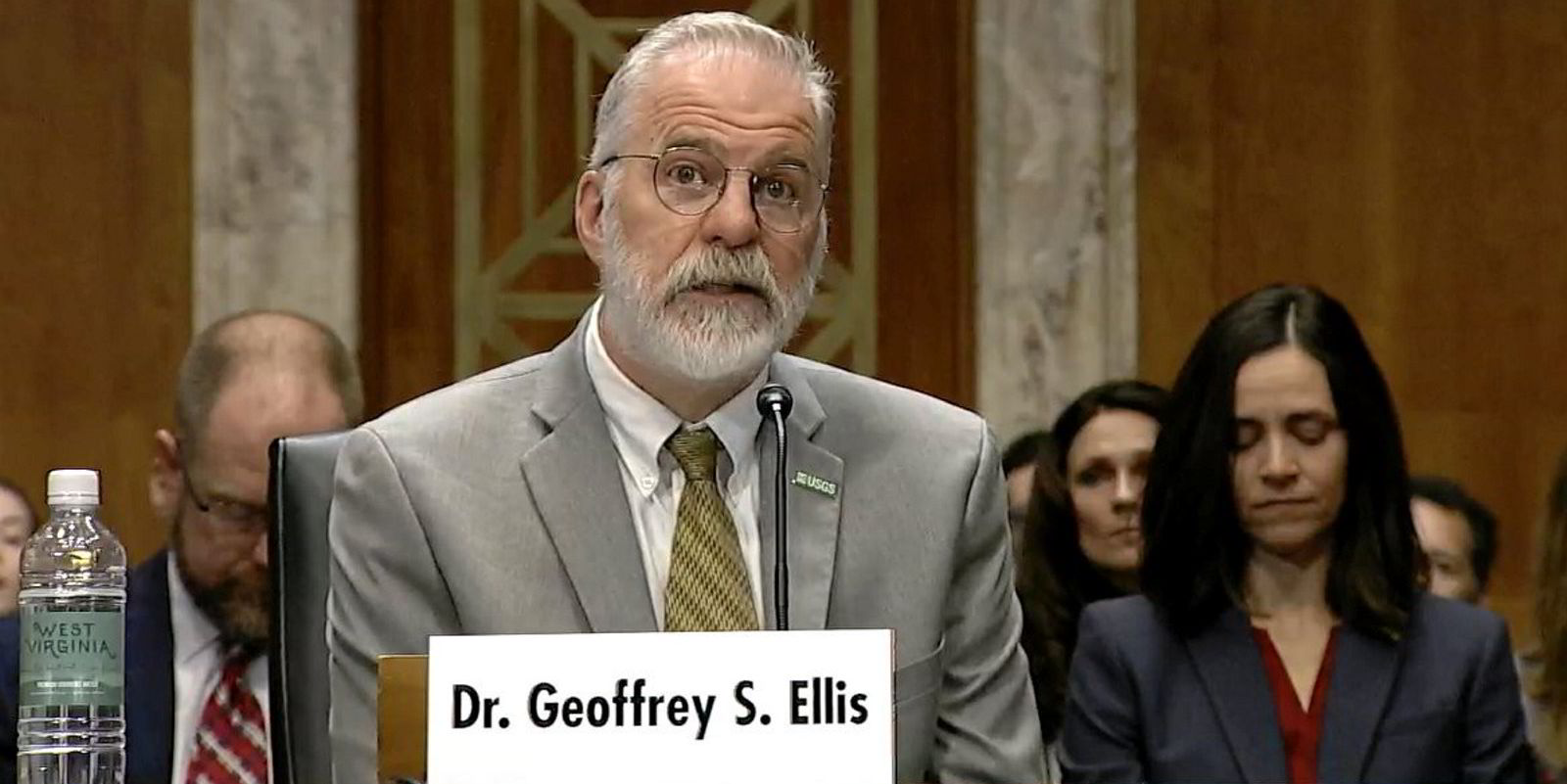
“Based on historical data on other geologic energy resources, the vast majority of the in-place hydrogen resource is likely to be in accumulations that are too deep, too far offshore, or too small to be economically recovered.
“However, the remainder could constitute a significant resource.”
The ranking Republican senator on the committee, John Barroso, addressed the third expert witness, Peter Johnson, CEO of natural-hydrogen company Koloma, quoting a comment attributed to the start-up’s key angel investor, billionaire Bill Gates, who apparently said: “It could be gigantic or it could be a bust, but if it’s really there, wow!”
Barroso asked Johnson: “So would you tell us why you think geologic hydrogen has real promise and won’t be a bust.”
Johnson replied: “I think the science of geologic hydrogen formation in the subsurface is very clear. There are hydrogen seeps all over the planet that have been documented. The question that needs to be answered is… are there accumulations that are large enough to be commercial? If you’ve got a really small puff of hydrogen from one well out on a farmer’s field, that’s hard to commercialise.
“The bust scenario is not that there’s no hydrogen under the ground, that science is established. The bust scenario is there’s nothing big enough or the only thing that’s big is in the middle of Greenland.”
He later said: “It’s a matter of finding large enough resources of high enough purity close enough to markets.”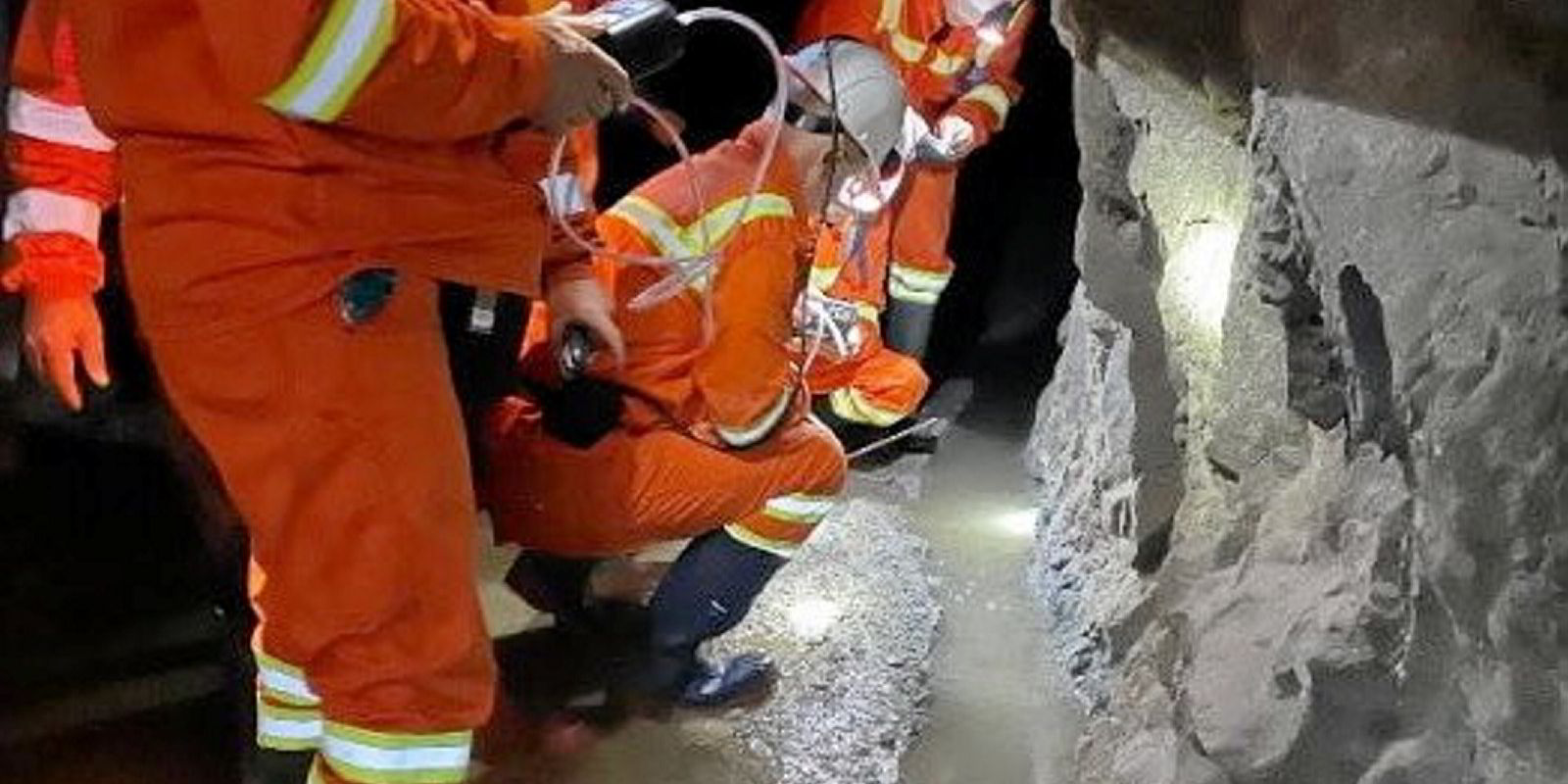
Ellis told the committee that the USGS was in the process of “developing a conceptual geologic model for evaluating the potential for hydrogen accumulation in the subsurface… [that would map] the likelihood of finding geologic hydrogen resources in the lower 48 states of the US”.
Committee chairman Senator Joe Manchin, the controversial Democrat from West Virginia, asked Ellis when the USGS would be able to identify where the geological hydrogen was “because we’re not going to go out drilling until you tell us where to go”.
Ellis replied that the USGS is aiming to get “our initial map of prospectivity for the US by the end of this year”.
“But the second key point here is that once we have this map, it’s not going to tell you where to drill your wells. This is going to tell us where the best place is to start doing more detailed exploration.”
He added that according to the agency’s “initial efforts”, the most likely areas to exploit natural hydrogen in the US were along the East Coast, “all the way from New Jersey down to Georgia”.
“This is related to offshore iron-rich rocks that could be a source for hydrogen, and then it would be migrating towards the coastline.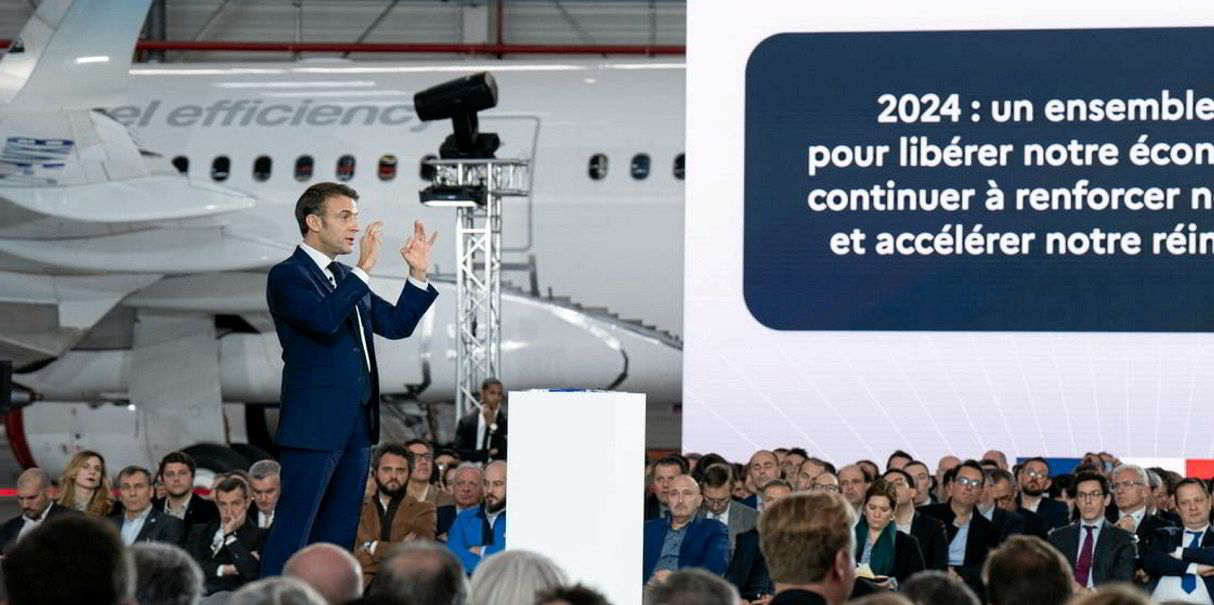
“Another prospective area is the mid-continent rift where we have ultramafic rocks, these iron-rich rocks that extend all the way from northeast Kansas up through Nebraska, Iowa and into Minnesota, and up into Ontario and then down into Michigan.
“This is based on our understanding of where the source rocks are most likely to be, but it’s complicated.”
A short history of natural hydrogen development
In his opening statement to the committee, Ellis explained why no-one had thought to drill for natural hydrogen until only a few years ago.
“The existence of naturally occurring hydrogen is well documented in many geologic environments. Nevertheless, out of the millions of oil and gas wells that have been drilled to date, only a few dozen oilfields have been documented to contain more than trace levels of hydrogen.
“This has led many geoscientists to conclude that economic accumulations of hydrogen in the subsurface are non-existent. However, recent evidence indicates that we have simply not looked for geologic hydrogen resources in the right places with the right tools.”
He explained that a shallow water well drilled in the west African country of Mali in 1987 produced “an unexpected gas explosion and was quickly abandoned”.
“Nearly 25 years later, an oil and gas company returned to the site and discovered that the gas was more than 97% hydrogen. Subsequent exploration identified five geologic reservoirs containing nearly pure hydrogen gas. This hydrogen has been in production for more than 10 years and is used to provide electricity to a local village.
“This discovery was first described in the scientific literature in 2018 and stimulated new interest in the resource potential of naturally occurring or ‘geologic’ hydrogen.”
He added: “The geologic setting of the hydrogen accumulation in Mali is not unique, which suggests that geologic-hydrogen accumulations could be widespread. In fact, researchers have begun reviewing historical industry records and unpublished data and have uncovered historical discoveries of natural hydrogen that had gone unnoticed in numerous places around the world.”(Copyright)
Natural hydrogen
US
Koloma








































